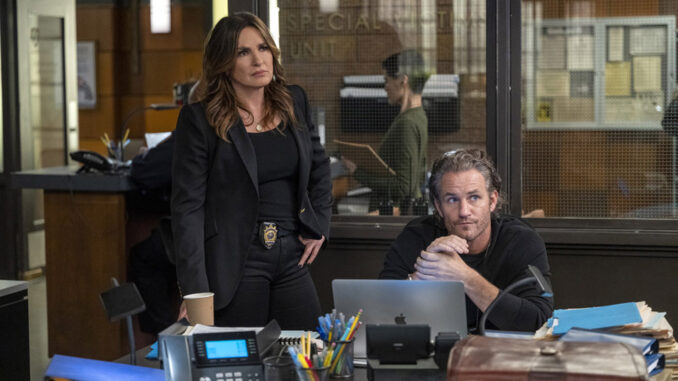
The familiar chime of the opening theme, the stark black-and-white title card, and the gravitas of Mariska Hargitay’s Olivia Benson: for a quarter-century, Law & Order: Special Victims Unit has been more than just a television show; it’s been a cultural institution, a weekly ritual for millions. It’s a series that, despite its often-dark subject matter, provides a strange comfort, a predictable rhythm in an unpredictable world. So, when news trickles out about its upcoming season opener, every detail is dissected by a loyal fanbase. The announcement that Octavio Pisano will reprise his role as Detective Joe Velasco for the Season 25 premiere isn't just a casting note; it's a narrative decision that speaks volumes about the show's enduring formula, its commitment to evolving its complex tapestry of characters, and its shrewd understanding of what keeps audiences captivated.
At its core, SVU has always been an ensemble piece, anchored by Benson but propelled by the dynamic interplay within the squad room. New faces arrive, old ones depart, but the underlying ethos of fighting for the victims remains constant. Detective Velasco, introduced in Season 23, represented a fresh, albeit somewhat enigmatic, addition to the tight-knit unit. His past was shrouded in a subtle darkness, his loyalty sometimes questioned, and his methods occasionally straddling the line. He wasn't a clean-cut idealist like Stabler, nor a stoic rock like Fin. Velasco was a character painted in shades of grey, a reflection of the increasingly complex moral landscape the show navigates. His initial departure left lingering questions, an unresolved chord in the symphony of the precinct.
The decision to bring Velasco back, particularly for a season opener, is illustrative of SVU's narrative intelligence. Season premieres are often pivotal, designed to set the tone, unravel lingering cliffhangers, or introduce seismic shifts in character arcs. By reintroducing Velasco, the show is signaling a commitment to continuity and character development, even for figures who haven't been in the limelight for seasons on end. It suggests that his story, left purposefully unfinished, has a deeper purpose. Perhaps his return will shed light on his mysterious past, exploring themes of redemption, accountability, or the enduring scars of life on the streets. It allows the writers to revisit a compelling, if sometimes conflicted, character, adding new layers to the police procedural and challenging the black-and-white notions of justice.
Furthermore, Velasco’s return exemplifies SVU's ability to weave fresh threads into its deeply ingrained fabric. After 24 seasons, the challenge for any long-running show is to remain innovative without alienating its core audience. Bringing back a character like Velasco allows for both. He’s a familiar face, providing a sense of comfort and recognition for long-time viewers, but his return also promises new dynamics. How will Benson interact with him now? What impact will his past have on current cases? Will he be a renewed asset or a source of renewed conflict? These questions inject fresh narrative energy, preventing the show from becoming stagnant and ensuring that even a quarter-century in, there are still compelling stories to tell within the confines of the 16th precinct.
Ultimately, the news of Octavio Pisano’s return as Detective Velasco for the Law & Order: SVU Season 25 opener is more than a simple casting announcement; it's a microcosm of the show's enduring appeal. It illustrates SVU's commitment to its characters' evolving journeys, its strategic use of continuity to enrich its narrative, and its understanding that the human element—the pasts, presents, and futures of those who fight for justice—is as crucial as the crimes themselves. It promises a season that will likely delve deeper into the nuanced dance between personal history and professional duty, reaffirming SVU's status as a drama that continually finds new ways to explore the human condition, one difficult case at a time.
